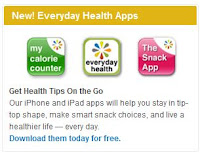
Those that know me know that I advocate for healthy foods as often as possible. I encourage my students to make healthy choices as often as they can. I also let them know that they can still eat 'fast food' occasionally but they should aim to select the less harmful items.
In this short post I have included some links that you can check out if you want ideas to improve your diet:
Buy from a
CSA. This will allow you to purchase locally grown, organic and seasonal produce. This boosts the local economy, reduces the use of pesticides and air miles, and will make you feel a lot healthier. You can collect the foods from the farm, or a local location. I just signed up to a CSA offered by "
The Gentleman Farmer".
Support your local farmers market. Out here in the suburbs we are lucky to have access to locally grown farm produce. I regularly visited the farmers market in Palatine last year, and the nearest one to school is in Libertyville. It's a little early to know exact locations and times but they will be printed online and in the Chicago Tribune. Check out this
link for the latest information available.
One of my food hero's is Jamie Oliver the British TV chef and food advocate. I think he's great not because he's English, but because he believes that we should all have access to affordable healthy foods, particularly in schools. His second season of the
Food Revolution has just started on ABC. You can watch the episodes online at this
link. You can also sign up for Jamies Food Revolution online and you will be sent further information about local food events in your community.
I show the excellent documentary
Food Inc in class.
Michael Pollan, the food journalist who appears in this movie, has written some excellent
books. If you can you should find time to read one of the following: "Food Rules: An Eaters Manual", "In Defense of Food: An Eaters Manifesto" and "The Omnivore's Dilemma" (which is also available in a young readers edition).
Other quick tips that I can recommend include:
Stop drinking soda and other sweetened drinks.
Eat at home, preferably together as a family, instead of eating out.
Encourage your school to stop serving junk foods.
Consider having 'Meatless Monday', go without meat for one day a week.
Try growing your own herbs, vegetables or fruit.
Read food labels. Demand to know what is in your food.
Advocate for better food information in your school and community.


